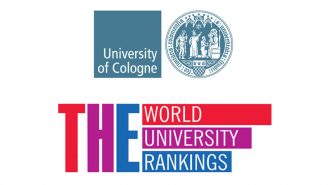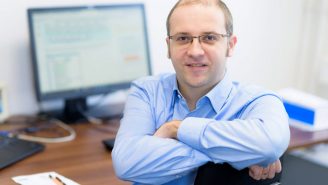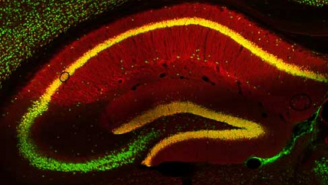-
 © Paderborn University
News from Campus OWL
© Paderborn University
News from Campus OWLQuantum Computers in Action
Quantum computers are one of the critical future technologies of the 21st century. They have the edge when it comes to solving complex computing tasks, but they require extremely high computing resources to do this. Researchers at Paderborn University have come up with an algorithm to solve this problem.
-
 © UoC & THE
News from the University of Cologne
© UoC & THE
News from the University of CologneSuccess in THE Rankings: University of Cologne in Top 9% of Universities Worldwide
The University of Cologne has come in at position 146 in the influential THE World University Rankings.
-
 © picture alliance / Westend61
News from Campus OWL
© picture alliance / Westend61
News from Campus OWLUnderstanding Uncertainty
Researchers at Bielefeld University are exploring the benefits of economic uncertainty. Uncertainty plays a key role in the economy: it gives new or small companies the chance to outsmart their established competitors, and it spurs all companies on to be more innovative. As a result, it drives technological change and the emergence of new markets and industries.
-
 Meet the FUTURE FORUM speakers
Meet the FUTURE FORUM speakers4 Questions with Michelle Gabriel
The DWIH New York had the pleasure of interviewing Michelle Gabriel, one of the speakers of the FUTURE FORUM: Fabricating the Future on October 7. Michelle is the Graduate Program Director, Sustainable Fashion, at Glasgow Caledonian New York College (GCNYC).
-
 German Studies Association
German Studies AssociationDWIH New York at the GSA Conference 2022
Our Head of Programs Jan Lüdert and Director Benedikt Brisch participated at the annual German Studies Association conference from September 15 to 18, this year in Houston, Texas.
-
 © UDE / Frank Preuss
News from UA Ruhr
© UDE / Frank Preuss
News from UA RuhrProtection for digital contracts
Anyone who uses digital contracts – also called smart contracts – should be careful about hacker attacks. Prof. Dr. Lucas Davi from University of Duisburg-Essen’s Institute of Software Technology paluno is developing a solution to find and fix security gaps in the contracts during programming and later in use. For this, he received a starting grant of 1.5 million euros from the European Research Council (ERCA).
-
 © Johannes Vogt
Research at University of Cologne
© Johannes Vogt
Research at University of CologneNo More Binge Eating: Signal Pathway in the Brain That Controls Food Intake Discovered
The brain controls our body’s lysophospholipids, which in turn control a programme that activates nutritional intake / specific inhibitors of lipid synthesis could serve as new obesity therapies / publication in ‘Nature Metabolism’. Signal Pathway in the Brain That Controls Food Intake Discovered by Group of Researchers Led by Professors from the University of Cologne, University of Münster and Yale School of Medicine.
- DWIH New York
- Topics
- Network
- Research & Innovation
- Activities
- Annual Reports
